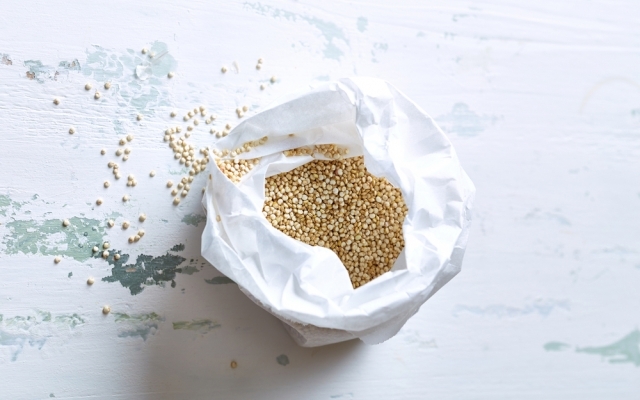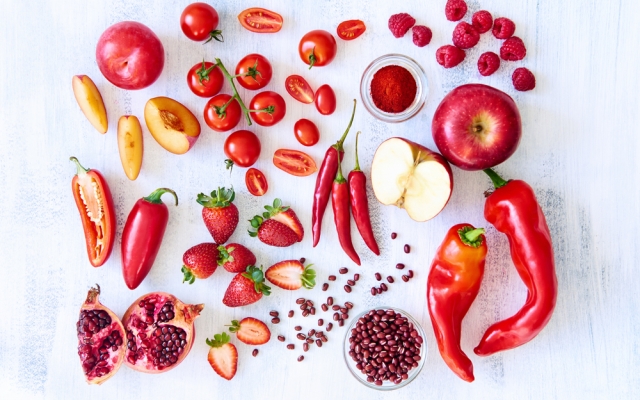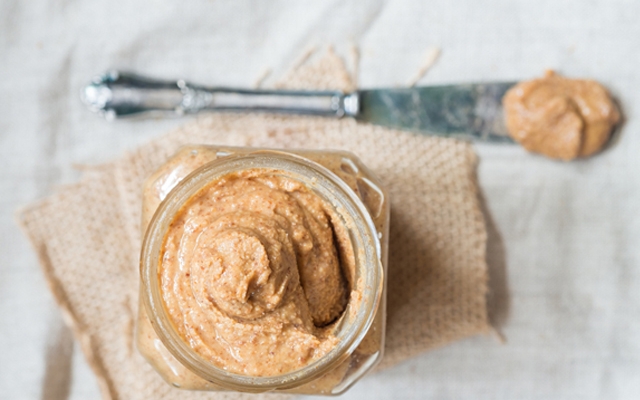Let’s face it, meditation can be tough. Eliminate all stray thoughts? Focus only on your breath? Sit still for (a minimum) of 10 minutes at a time? But, we are learning more and more that practicing daily meditation has so many amazing benefits; from helping us become more compassionate to enabling us to be more patient, loving, joyful, forgiving, and generous. Thankfully, there are some foods that we can start to incorporate into our diets, that can help us gain that laser focus we are looking to experience when we sit down to meditate. Here are 4 foods to help boost mindfulness…
4 Foods to Boost Mindfulness

Whole Grains
If you’re looking to do your mind and body good, try to incorporate more whole (think, ancient) grains into your diet. And by grains, we are not talking about white bread, rice or pasta. Whole-wheat pasta, whole-grain bread, and brown rice are better choices than the traditional white varieties, but even better than those are the variety of whole grains many now refer to as ancient grains, which include steel cut oats, quinoa, brown rice, millet, amarynth, and wheatberries, just to name a few. What is the benefit of these types of grains? They take longer to digest and they reduce the spike in blood sugar levels that is often associated with a diet that is high in carbohydrates. An added bonus? Ancient grains are rich in B vitamins which means they work to promote proper brain function, reduce stress, and ultimately they will help you feel more zen which will help boost mindfulness when practicing your daily meditation.

Lemon Water
If you’re looking for the perfect start to your day, and a boost in your meditation practice, look no further than lemon water. Lemons are naturally rich in vitamins and minerals, particularly vitamin C, an antioxidant that boosts the immune system, protects against cardiovascular disease and helps ward off cancer. Lemons also stimulate energy and can help enhance your mood. How? Both lemons and limes are one of the few foods that contain more negative charged ions than positive ones, which provides your body with a boost of energy when it enters your digestive tract. The refreshing scent of lemon also has mood enhancing and energizing properties. Its fresh and citrusy smell can brighten your mood and help clear your mind. Being high in potassium (an important mineral that works alongside sodium for smooth electrical transmission in the brain and nervous system), lemons also help reduce depression, anxiety, fogginess, and forgetfulness. Our advice? First thing when you wake up and before you sit down to meditate, sip on a glass of lemon water.

Whole Fruits & Veggies
Yes, eating a diet rich in whole fruits and veggies is one of the best things you can do for your body. But did you know they are equally powerful for your mind? Root vegetables including sweet potatoes, squash and carrots, are packed with all kinds of vitamins and minerals. But, the beta-carotene in these particular veggies has been shown to support your immune system to help keep you healthy and keep your mind sharp. They’re also chock-full of fiber, which means they’re slow to digest and you will feel fuller longer. Other whole fruits and veggies that we love right now include cauliflower, broccoli, spinach, eggplant, kale, raspberries, grapefruit, strawberries, avocado, blueberries and pomegranate seeds. An easy way to ensure that you are getting your daily fix of fresh fruits and veggies? Make a large super salad or bowl for lunch or dinner by combining your favourite grain (we like quinoa or wheatberries) with baby kale or spinach, avocado, pomegranate seeds, and some delicious roasted brocolli or cauliflower. Drizzle with your favourite dressing (a tahini based one is super fresh!) and eat immediately. We promise you’ll be on your way to a perfectly zen state in no time!

Nuts & Seeds
Nuts and seeds are a very rice source of magnesium (along with whole grains and green vegetables.) Magnesium is one of the most abundant minerals in our bodies and is crucially important to our health, however despite this, deficiency is increasing. It’s actually estimated that 60% of us don’t get enough magnesium from the foods we eat and therefore manifest in symptoms such as anxiety, heart arrhythmias, insulin resistance, muscle spasms and sleep disruptions. It’s obvious then, that if we eat more magnesium-rich foods, it will help reduce anxiety and calm our minds. If you’re not a fan of raw nuts like cashews, almonds or hazelnuts, why not try to spread some healthy omega-rich nut butters on your morning toast.
Foods to avoid before meditating
If you’re really trying to follow the rules, it’s best to avoid all ‘tamasic’ or ‘rajasic’ foods before you begin meditating. What are these you ask? Well, tamasic foods include such things as eggs, vinegar, mushrooms, meat, poultry, fish, and alcohol. These foods are thought to create impure and angry thoughts. Rajasic foods include garlic, onions, spicy foods, coffee, tea, soft drinks, and any highly processed convenience foods with either refined sugar or heavy amounts of salt.
But, really, if you’re like us and you’re just trying to reduce your daily anxiety and stress a little bit, boost mindfulness, and create a little more zen in your hectic life, our best advice is to eat a healthy diet filled with as many whole (read: unprocessed) foods as possible. Limit sugar, processed foods, caffeine, and drink in moderation (although we now know that both caffeine and alcohol have many health benefits).
Our daily mantra to keep us calm and zen? Everything in moderation.
Tagged under: mindfulness,meditation,boost mindfulness,help meditating
Category: recipegeek,food





